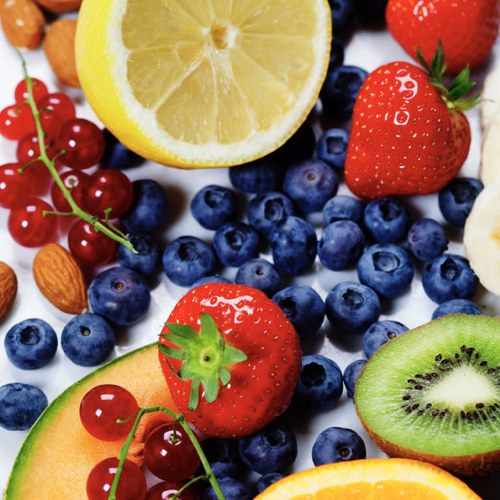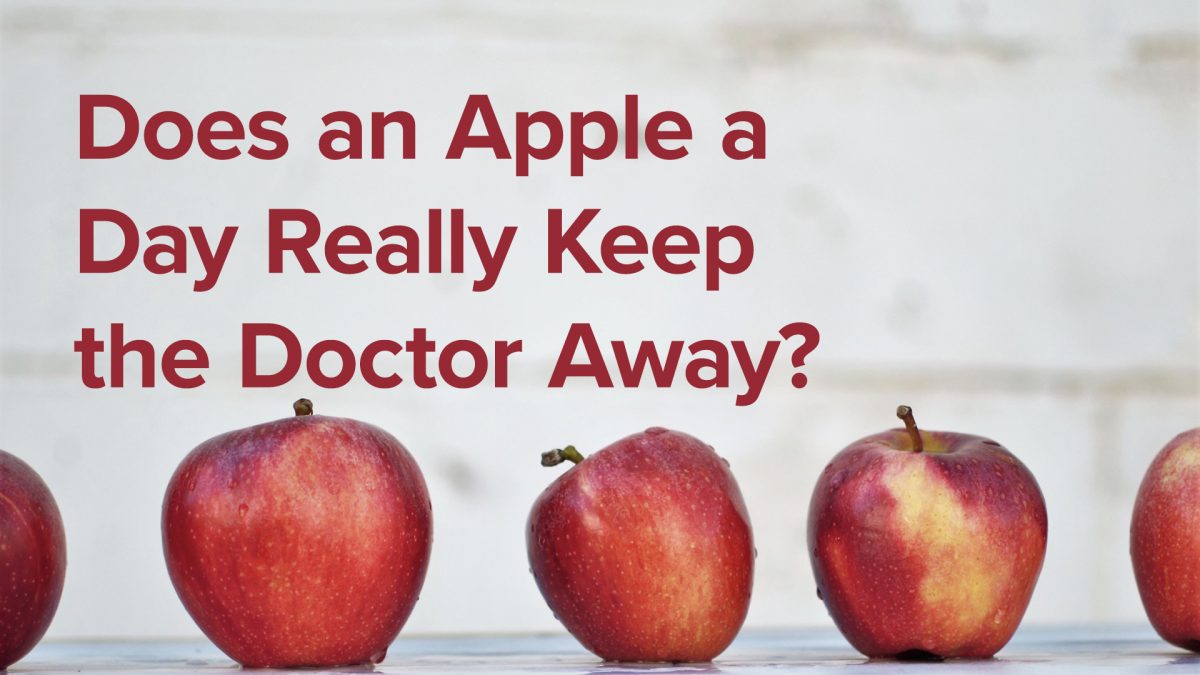
Fruit
It took years for nearly 500 researchers from more than 300 institutions in 50 countries to develop the 2010 Global Burden of Disease Study, the largest analysis of risk factors for death and disease in history. In the United States, the massive study determined that the leading cause of both death and disability was the American diet, followed by smoking. What did they find to be the worst aspect about our diet? Not eating enough fruit.
I recommend one daily serving of berries (half cup fresh or frozen berries, or a quarter cup dried) and three daily servings of other fruit (a medium-sized fruit, a cup cut-up fruit, or a quarter cup dried). Why do I single out berries?
Berries are the healthiest fruits in part due to their plant pigments. They evolved to have bright, contrasting colors to attract fruit-eating critters to help disperse their seeds, and the same molecular characteristics that give berries such vibrant colors may account for some of their antioxidant abilities. Berries are second only to herbs and spices as the most antioxidant-packed food category. As a group, they average nearly 10 times more antioxidants than other fruits and vegetables (and exceed 50 times more than animal-based foods). Berries offer potential protection against cancer, a boost to the immune system, and a guard for the liver and brain. An American Cancer Society study of nearly 100,000 men and women found that those who ate the most berries appeared significantly less likely to die of cardiovascular disease.
Indeed, adhering to just four simple healthy lifestyle factors may have a strong impact on chronic disease prevention: not smoking, not being obese, getting a half hour of daily exercise, and eating healthier—defined as consuming more fruits, veggies, and whole grains and less meat. These four factors alone were found to account for 78 percent of chronic disease risk. If we manage to tick off all four, we may be able to wipe out more than 90 percent of our risk of developing diabetes, more than 80 percent of our risk of having a heart attack, cut by half our risk of having a stroke, and reduce our overall cancer risk by more than one-third. For some cancers, like our number-two cancer killer, colon cancer, up to 71 percent of cases appear to be preventable through a similar portfolio of simple diet and lifestyle changes.
For substantiation of any statements of fact from the peer-reviewed medical literature, please see the associated videos below.
Image Credit: Natalia Klenova © 123RF.com. This image has been modified.
Popular Videos for Fruit

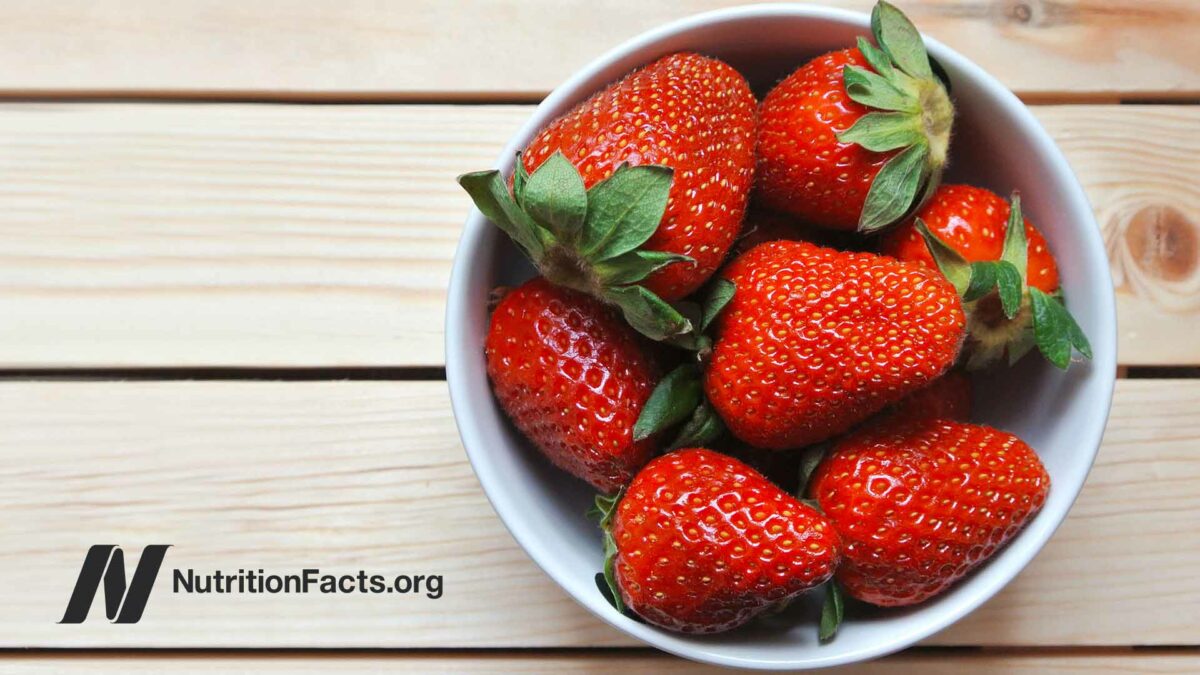
If Fructose Is Bad, What About Fruit?
Does the fructose naturally found in fruit and fruit juice have the same adverse effects...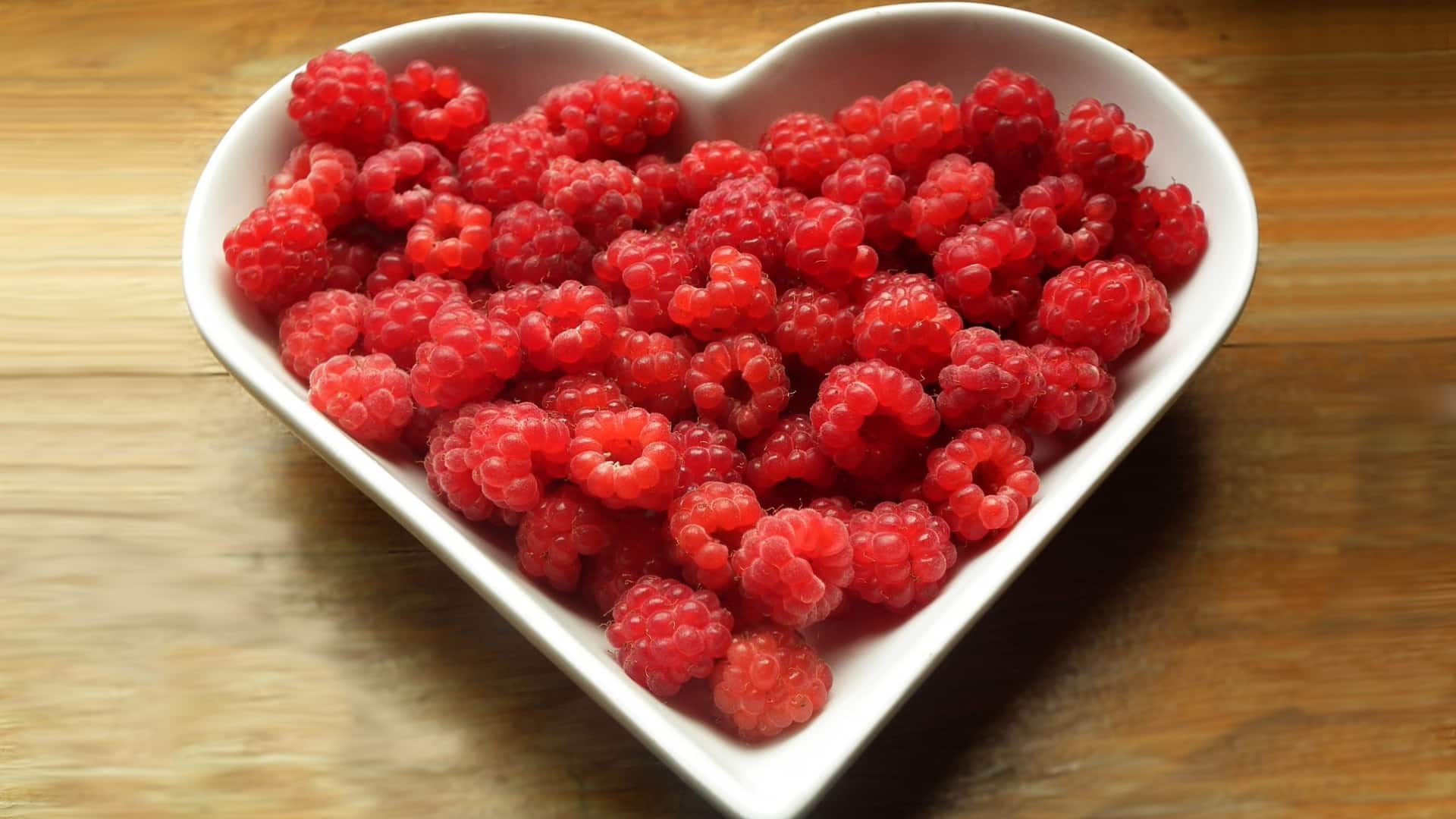
Inhibiting Platelet Aggregation with Berries
The number one killer of Americans may be not eating enough fruit. Even if we...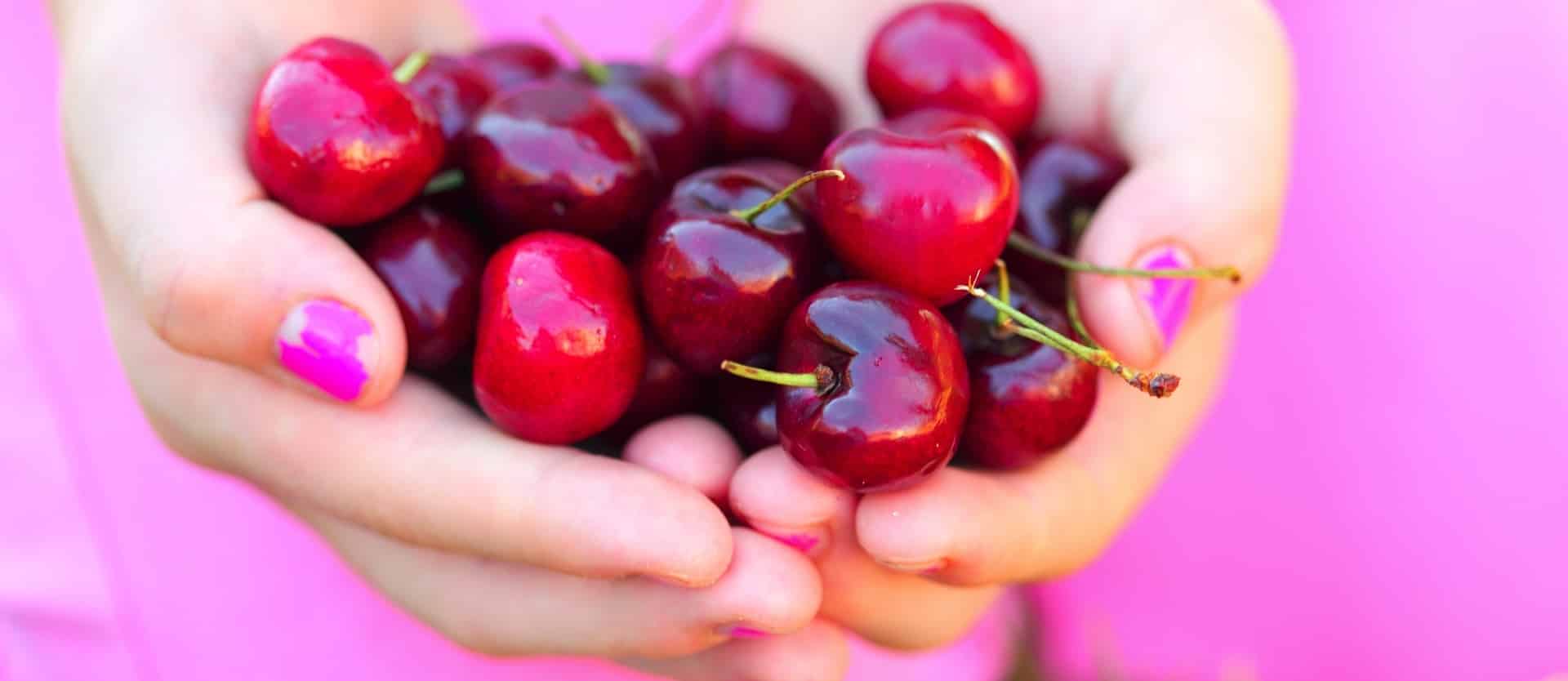
Gout Treatment with a Cherry on Top
How do sweet cherries compare to the drug allopurinol and a low-purine diet for the...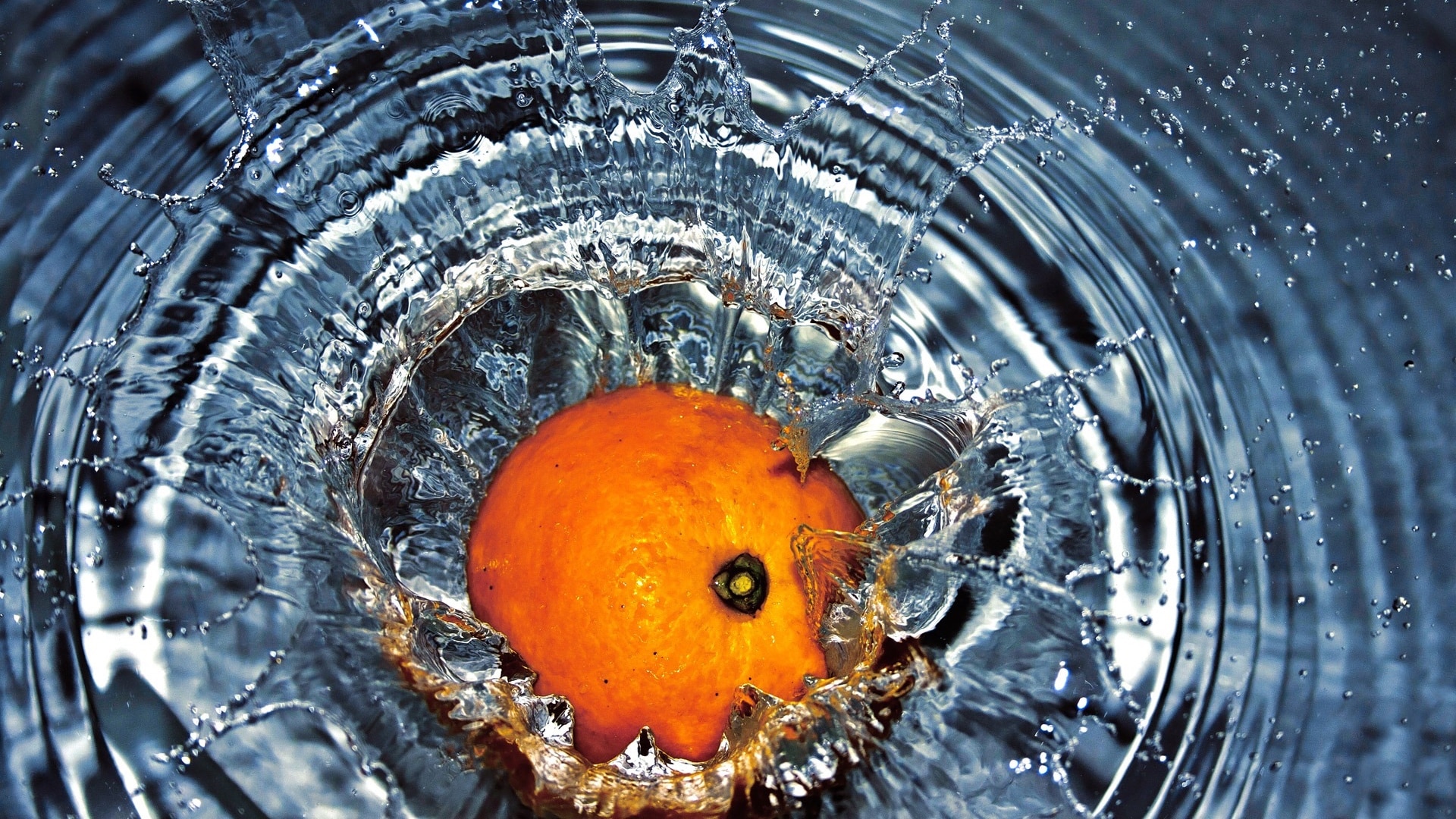
How to Make Your Own Fruit & Vegetable Wash
Commercial fruit and vegetable washes fail to work better than tap water, but there is...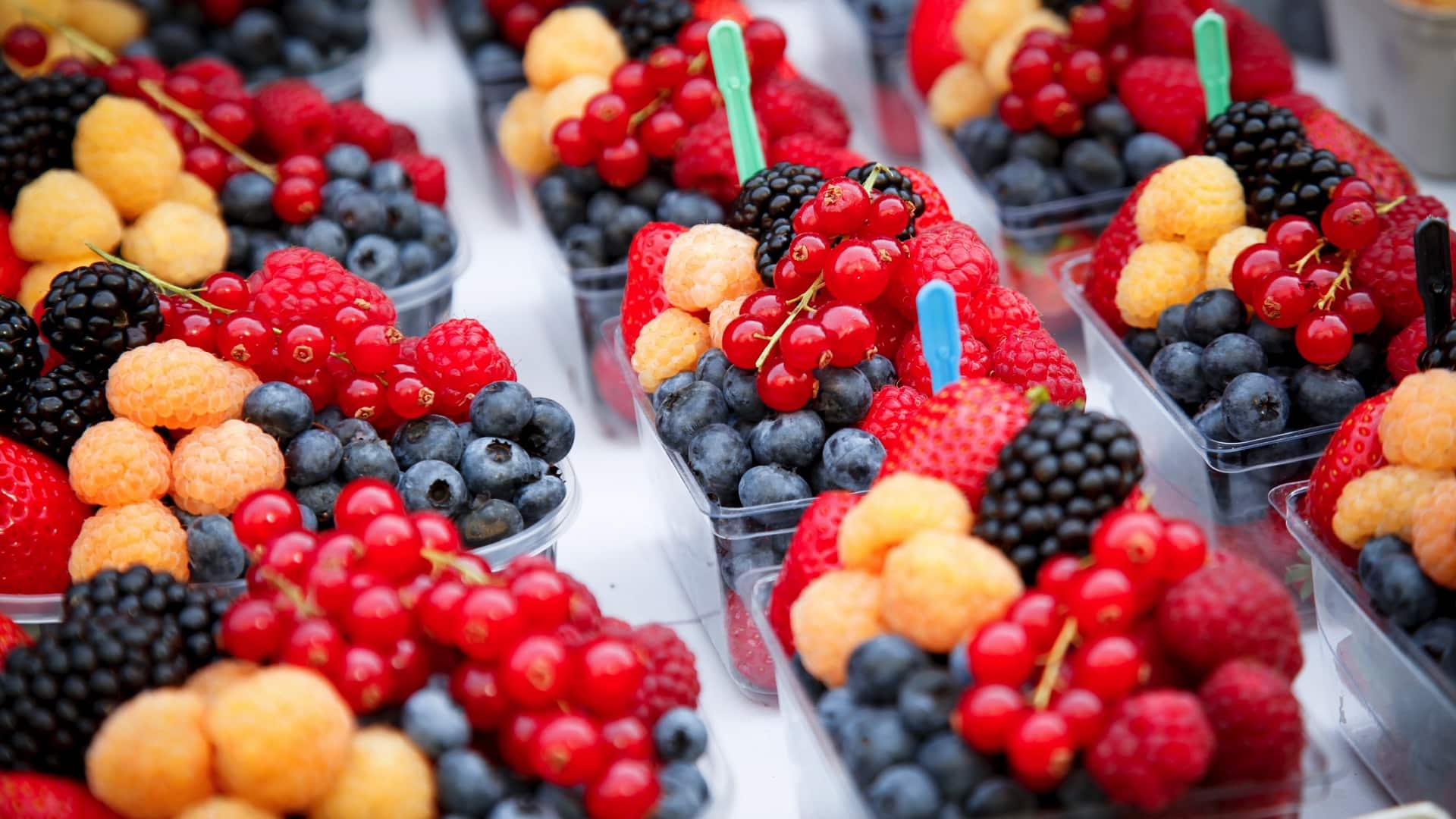
How Much Fruit Is Too Much?
Does the threshold for toxicity of fructose apply to fruit or just to added industrial...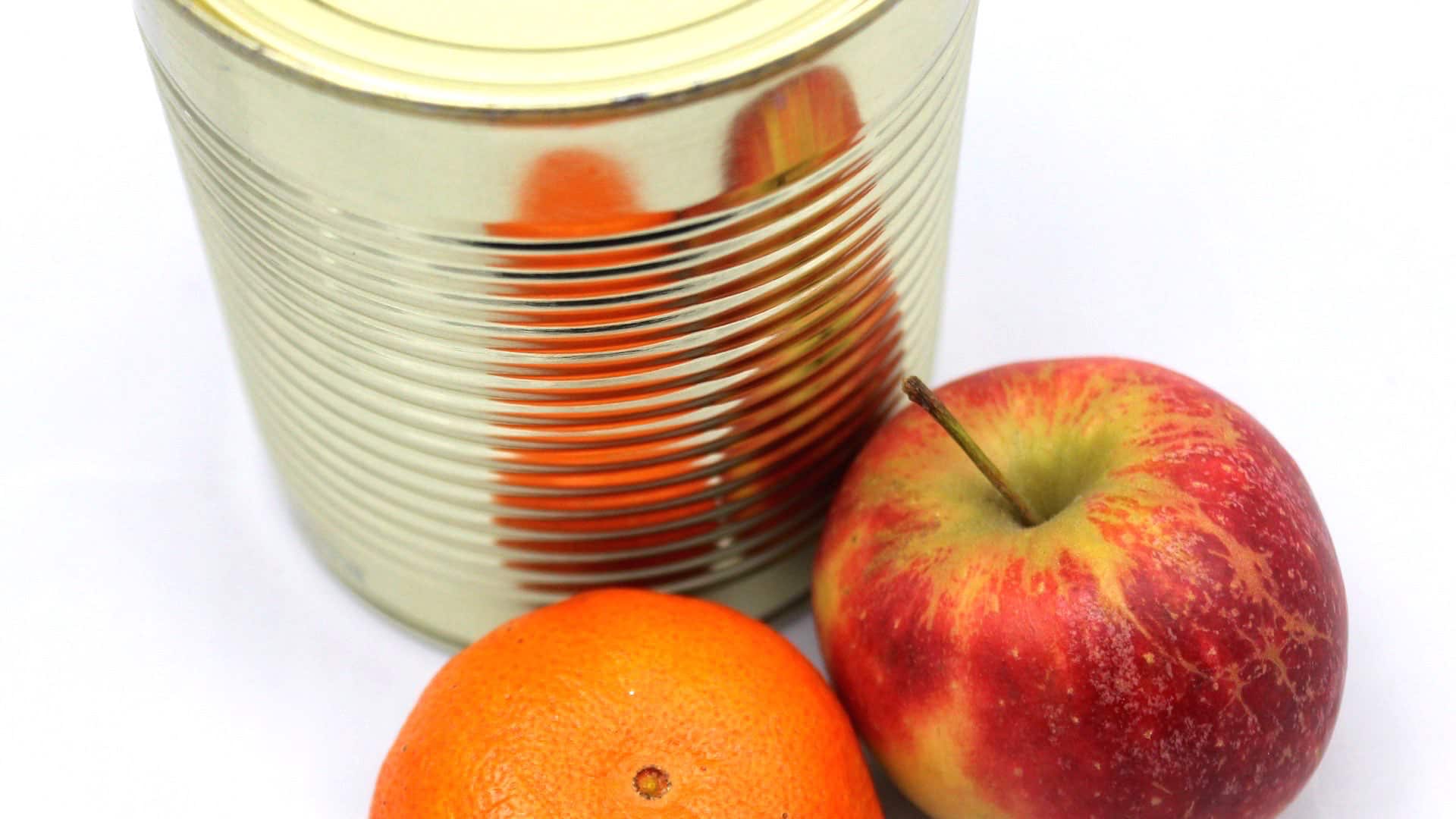
Is Canned Fruit as Healthy?
Perhaps dietary guidelines should stress fresh, frozen, and dried fruit—rather than canned.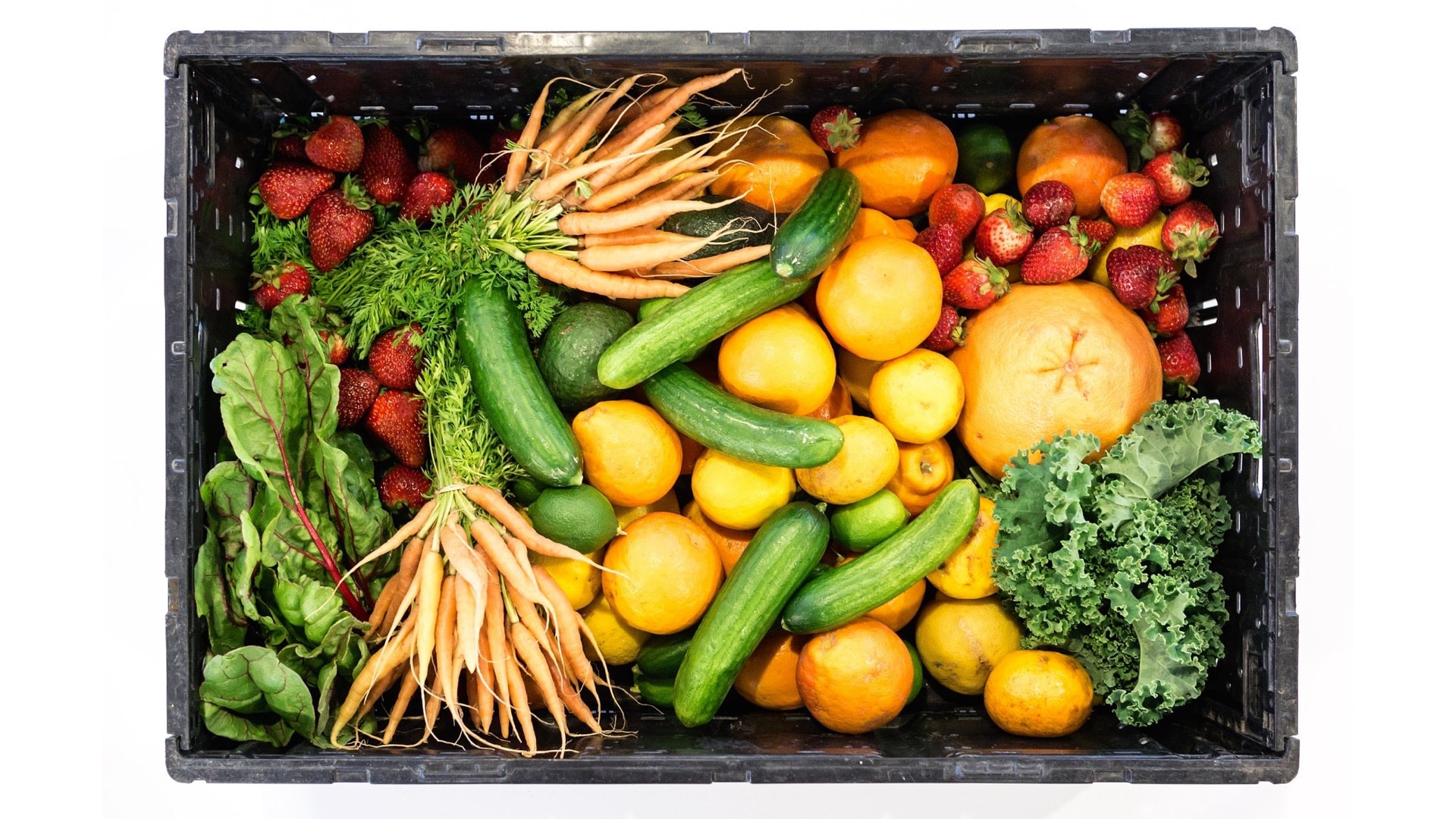
Specific Receptors for Specific Fruits and Vegetables
Dietary diversity is important because each plant family has a unique combination of phytonutrients that...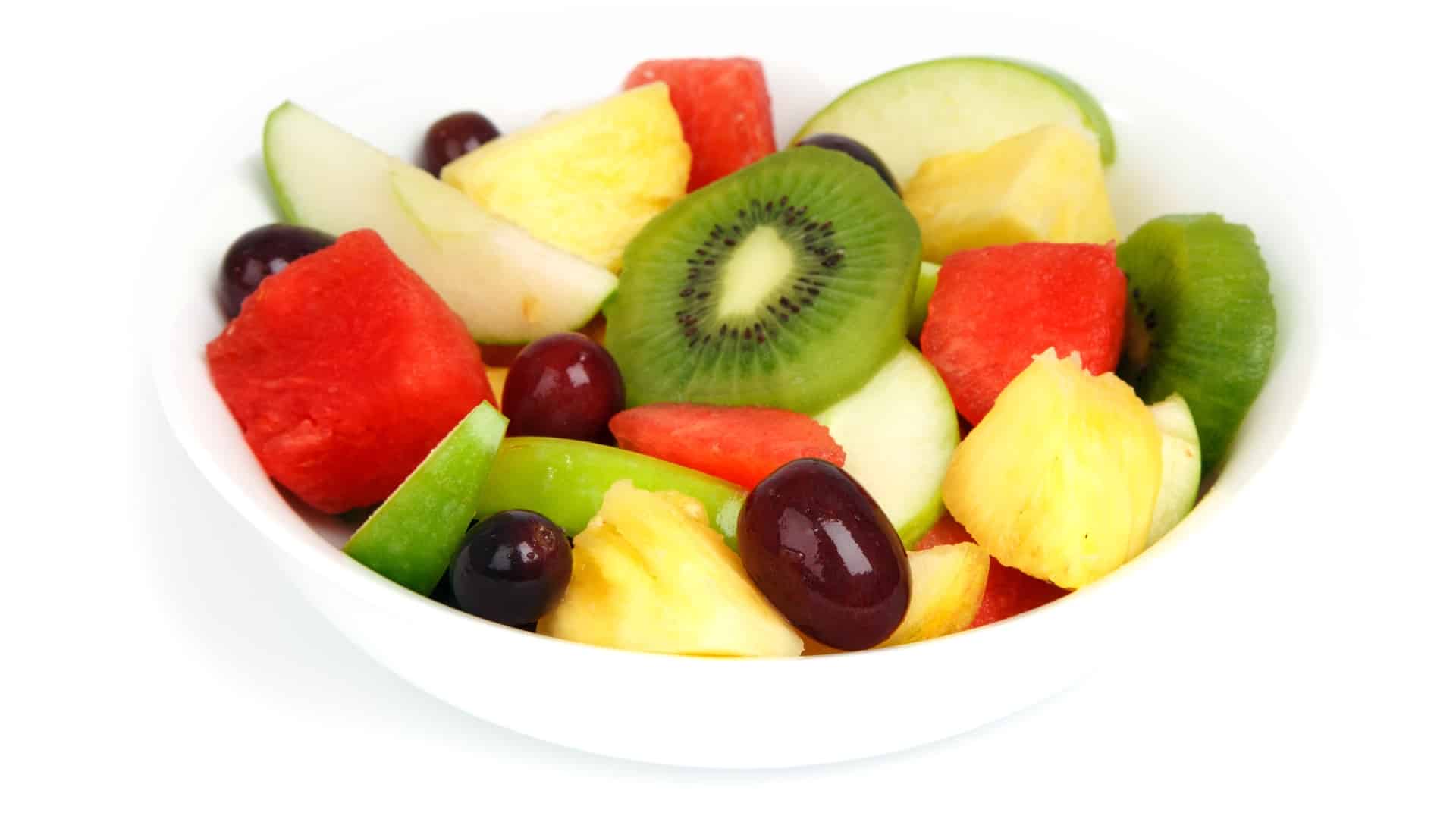
Is a Neutropenic Diet Necessary for Cancer Patients?
Immunocompromised patients, such as those undergoing chemotherapy, are often denied fresh fruits and vegetables to...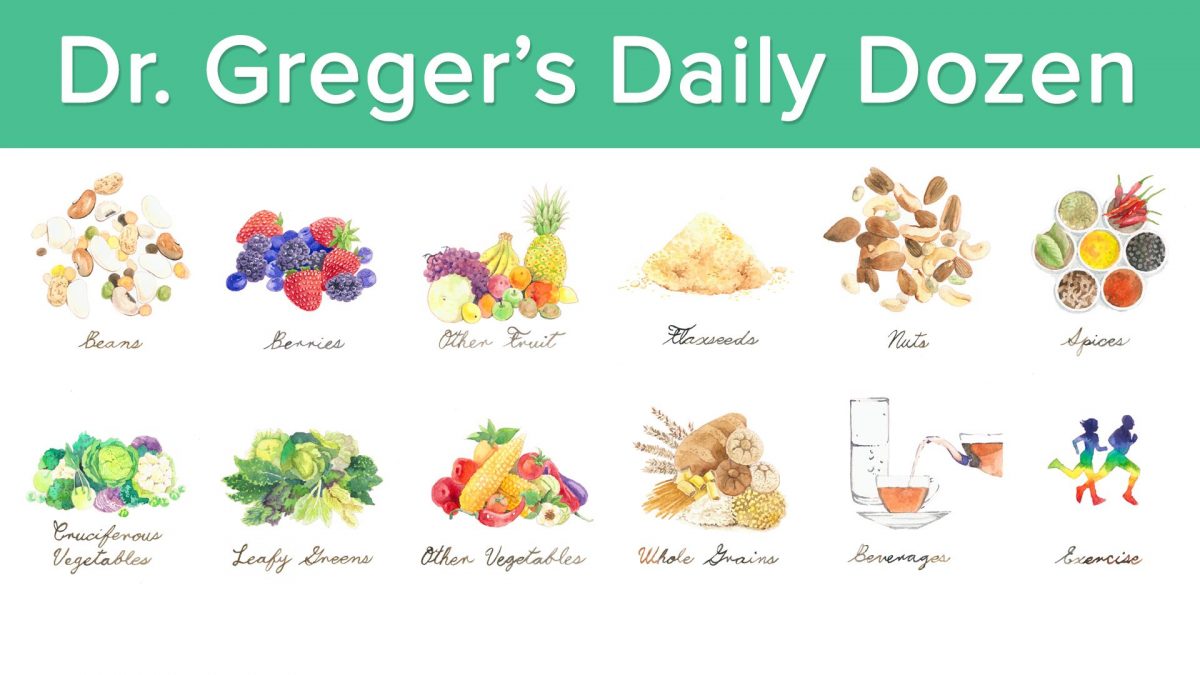
Dr. Greger’s Daily Dozen Checklist
In my book How Not to Die, I center my recommendations around a Daily Dozen...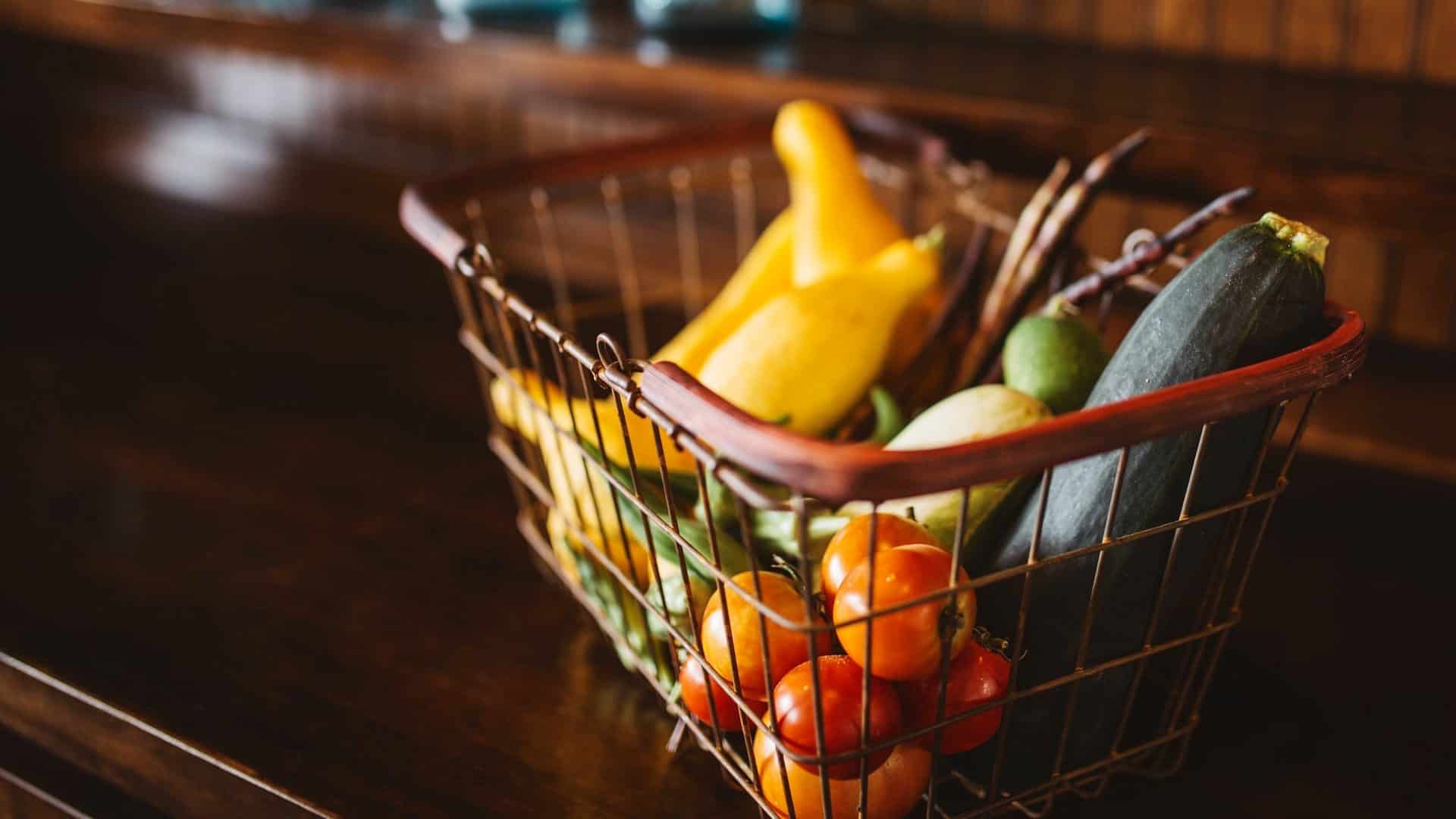
Food Synergy
Combining certain foods together may be more beneficial than eating them separately.All Videos for Fruit
-

Do the Health Impacts of Ultra-Processed Foods Apply to Plant-Based Meat Alternatives?
If the only ultra-processed food that appears to be killing people is meat, then plant-based meats may be the solution to the ultra-processed foods problem.
-

What Are Ultra-Processed Foods?
How exactly is “ultra-processed” defined?
-

How to Boost Fat Burning by 25%
A single dietary change can increase our resting metabolic rate.
-

The Side Effects of Statins: Are They Worth It?
When statin-“intolerant” patients are challenged blindly, how many are really suffering muscle side effects?
-

How Long Does It Take to Become Vitamin B12-Deficient and What Are the Symptoms?
For those eating plant-based diets, encouragement of vitamin B12 supplementation cannot be overemphasized.
-

Ultra-Processed Foods: Concerns, Controversies, and Exceptions
What is the role of ultra-processed plant-based products in the diet?
-

Can a Plant-Based Diet Reverse Type 2 Diabetes?
Diet as a primary intervention for type 2 diabetes is the most effective in achieving remission when emphasizing whole, plant-based foods with minimal consumption of animal products.
-

Preventing Gestational Diabetes During Pregnancy with Diet
Eating well-balanced plant-based diets during pregnancy can reduce risks of gestational diabetes and hypertensive disorders like preeclampsia.
-

Do Not Eat Pawpaws
Pawpaw fruits, like soursop, guanabana, sweetsop, sugar apple, cherimoya, and custard apple, contain neurotoxins that may cause a neurodegenerative disease.
-

Is Soil Degradation Reducing the Nutrition of Fruits and Vegetables?
Is the purported decline of nutrients in our crops due to soil degradation, or is that just supplement industry propaganda?
-

How Much Do Doctors Know About Nutrition?
Who won in a head-to-head test of nutrition knowledge––doctors or patients?
-

Pros and Cons of Raw Food Diets
Is there an advantage to eating a raw plant-based diet over a diet of raw and cooked whole plant foods?
-

Perceptions of Childhood Obesity and Diet Quality
One reason kids may not be eating more healthfully is that their parents vastly overestimate the quality of their child’s diet.
-

Pesticide Exposure and Hypospadias Birth Defects in Vegetarians
What role do vegetarian diets and organic foods play in the prevention or promotion of a birth defect called hypospadias?
-

How to Get Enough Polyphenols for Life Extension
Is the link between flavonoid consumption and longevity cause-and-effect, and are all sources of flavonoids equally healthy?
-

How to Improve Your Heart Rate Variability
A healthy heart doesn’t beat like a metronome.
-

Risks and Benefits of Nicotinamide Mononucleotide (NMN), a NAD+ Booster
NR may just be a waste of money, safe but ineffective. NMN seems similarly useless in humans, but it may not even be safe.
-

The Benefits of Saffron for Treating Age-Related Macular Degeneration
Eight threads of saffron a day can improve visual acuity in older adults with mild or moderate age-related macular degeneration.
-

Melatonin Supplements for Sleep and Anti-Aging?
The secretion of melatonin appears to progressively decline with age, dropping as much as 70 percent between middle and older age.
-

The Best Foods for Your Skin
Greens, apples, tomato paste, and grapes are put to the test as edible skin care candidates.
-

Obesity: Is a GLP-1 Deficiency Its Cause, and How to Treat It Without Ozempic and Other Drugs
What is a safer and cheaper way to lose weight than GLP-1 drugs?
-

The Best Way to Boost NAD+: Supplements vs. Diet (webinar recording)
The pros and cons of all the NAD+ supplements and what are the ways to boost NAD+ naturally with diet and lifestyle?
-

Does Drinking More Water Help You Lose Weight?
Those who stay hydrated tend to maintain a healthier body weight, but is it cause and effect?
-

The Downside to Banana Smoothies for Polyphenol Absorption
An enzyme in bananas can destroy some of the phytonutrients in berries and cocoa, but there is a way to reduce the effect.
-

How to Prevent Wrinkles with Diet
The evidence supports the recommendation to follow a whole food, plant-based diet for healthier looking skin.
-

How to Get Rid of Garlic Breath
After study participants took some garlic, researchers gave them whey protein, lemon juice, green tea, chlorophyll, 7UP soda, a raw pink lady apple, a cooked apple, parsley, spinach, and mint leaves. Which do you think worked best?
-

Can Alzheimer’s Disease Be Reversed with a Plant-Based Diet?
Dr. Dean Ornish publishes the first randomized controlled trial investigating whether a plant-based diet and lifestyle program may reverse the course of early-stage Alzheimer’s disease.
-

Onions and Tomatoes Put to the Test for Osteoporosis
Beyond the antioxidant, anti-inflammatory, and alkaline-forming qualities of fruits and vegetables in general, are there extra benefits our bones can get from particular produce?
-

Three Reasons Fruits and Vegetables May Reduce Osteoporosis Risk
Even just a single extra serving of fruits and vegetables per day is associated with lower bone fracture risk.
-

Why Do Milk Drinkers Live Shorter Lives on Average?
How might we reduce the risk of premature death from dairy consumption?
-

How Not To Age – Live Presentation
In this live lecture, Dr. Greger offers a sneak peek into his latest book, How Not to Age, a New York Times Best Seller.
-

Which Foods Are the Most Anti-Angiogenic?
For cancer prevention, researchers suggest “constant consumption” of anti-angiogenic foods.
-

Targeting Angiogenesis to Lose Weight
Expanding body fat releases blood supply-generating factors that may end up hooking up tumors, too.
-

Greens, Green Tea, and Nuts Put to the Test for Telomeres
Not all plant foods are linked to less cellular aging based on telomere attrition, and not all animal foods are linked to more.
-

Are Beer, Bananas, and B Vitamins Mosquito Repellents?
What happens when mosquitos put on beer goggles?
-

Fecal Transplants for Aging and Weight Loss
Does poop from centenarians have anti-aging properties?
-

Fasting to Detox
How might we help flush the pollutants stored in our fat that come spilling out into our bloodstream during weight loss?
-

Plant-Based Pregnancy Outcomes and Breast Milk
The composition of breast milk is compared between vegetarian and nonvegetarian women.
-

Strategies to Eat Less Meat
What is the most effective way to help people reduce their meat consumption?
-

Plant-Based Diet for Treating and Reversing Stage 3 Kidney Disease
I share a touching story of the power of plant-based eating for chronic kidney failure.
